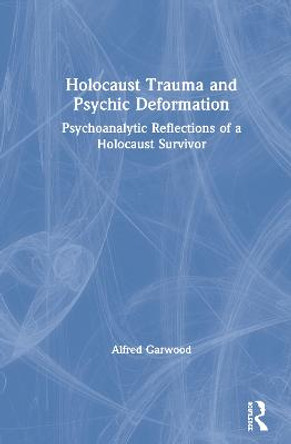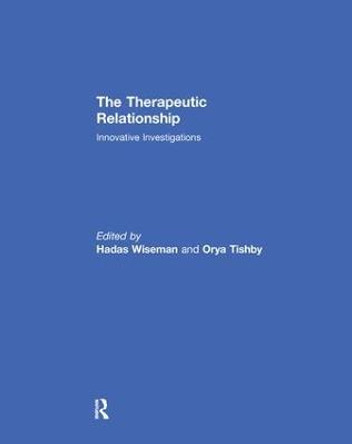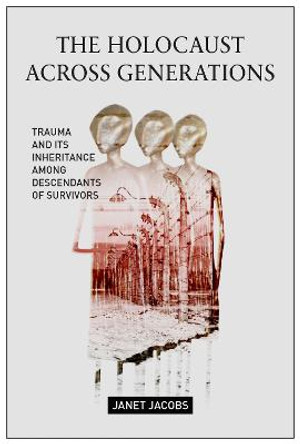Description
Discusses the echoes of the trauma traced in the stories of the children of Holocaust survivors.
About the Author
Hadas Wiseman is Senior Lecturer in the Department of Counseling and Human Development, Faculty of Education, University of Haifa, Israel. She is a member of the Society for Psychotherapy Research (SPR) and of the International Association for Relationship Research (IARR). She works in Israel and spent a sabbatical year in Simon Fraser University, Vancouver, Canada. Wiseman is also a certified clinical psychologist in private practice in Tivon, Israel, and is co-author of Conversation as Method: Analyzing the Relational World of People Who Were Raised Communally. Jacques P. Barber is Professor of Psychology, Center for Psychotherapy Research, Department of Psychiatry, University of Pennsylvania, Philadelphia, PA, USA. He is President of the Society for Psychotherapy Research. He co-authored the Handbook of Brief Dynamic Therapies; Handbook of Dynamic Psychotherapy Research and Practice: A How-to-Do-Them Guide; and Dynamic Therapies for Psychiatric Disorders (Axis 1).
Reviews
"In this remarkable book, Wiseman and Barber employ an ingenious approach for studying the "echoes of trauma" in children of Holocaust survivors. Combining the descriptive nuance of the case study approach with the rigor of formal narrative analysis procedures, they provide a powerful portrait of the relational and emotional themes that pervade the lives of survivors' children. Common themes such as the conflicting needs for closeness and autonomy, and the need to protect vulnerable parents are vividly illustrated in their subjects' lives. Of particular interest is the phenomenon of intergenerational transmission of trauma resulting in a type of knowing without knowing. This is a rich, compelling and beautifully written book that will be of interest to a wide audience of readers." -Jeremy D. Safran, Ph.D., Professor and Director of Clinical Psychology, New School for Social Research
"As a wartime hidden child I lived in the shadow of the Holocaust. The miraculous survival of my parents ensured that I lived in their shadow also. There are consequences that reverberate for a life-time . . . and beyond. I see myself, my parents and my children in the accounts offered in this compelling work. It is not about pathology, it is about life lived within a profound and dramatic trauma and its inevitable consequences-some damaging, some inspirational. This book is an important contribution to the understanding and treatment of trans-generational issues, no matter the origins." -Robert Krell, M.D., Professor Emeritus of Psychiatry, University of British Columbia
"This book offers a sensitive and textured portrayal of three-generational familial processes of the conspiracy of silence that has been demonstrated to be a prevalent and perhaps the most powerful mechanism of transmission of trauma in numerous massively traumatized populations around the world. Through a fresh analysis of relational themes and emotions, Wiseman and Barber trace the echoes of parental trauma in survivors' offspring lives as they struggle with the conflicts between silence and breaking of the silence." -Yael Danieli, Ph.D., Director, Group Project for Holocaust Survivors and their Children, New York, NY
"Wiseman (counseling and human development, U. of Haifa, Israel) and Barber (psychology, U. of Pennsylvania) present this study of the psychological legacy of the Holocaust on children of survivors, basing their study on interviews conducted with about 60 Israelis that fit that description who were sampled randomly. Combining the Core Conflictual Relationship Theme method with narrative-qualitative analysis, the authors address relational themes and emotions among the narratives, illuminating issues for clinicians working with survivors of mass trauma and their families." -Book News
"The book is organized into emergent relational themes described within the context of CCRT, capturing the "echoes" of trauma of the Holocaust within second-generation survivors. The authors address the clinical implications of their findings and summarize the echoes of trauma as they occur within the context of parent-child relationships rather than specific transmission of traumatic sequelae, though they also pay attention to the sociocultural context of the survivor...Recommended..." --A.N. Douglas, Mount Holyoke College, CHOICE
"The book is well written and easy to digest, and may be applied immediately in therapeutic situations. The overview of the CCRT method seems sufficient for the reader to understand the information presented and may prompt additional exploration of the theory. The concepts are clearly articulated." --Patricia M. Hernandez, PsycCRITIQUES
Book Information
ISBN 9780521879477
Author Hadas Wiseman
Format Hardback
Page Count 304
Imprint Cambridge University Press
Publisher Cambridge University Press
Weight(grams) 540g
Dimensions(mm) 235mm * 160mm * 21mm










